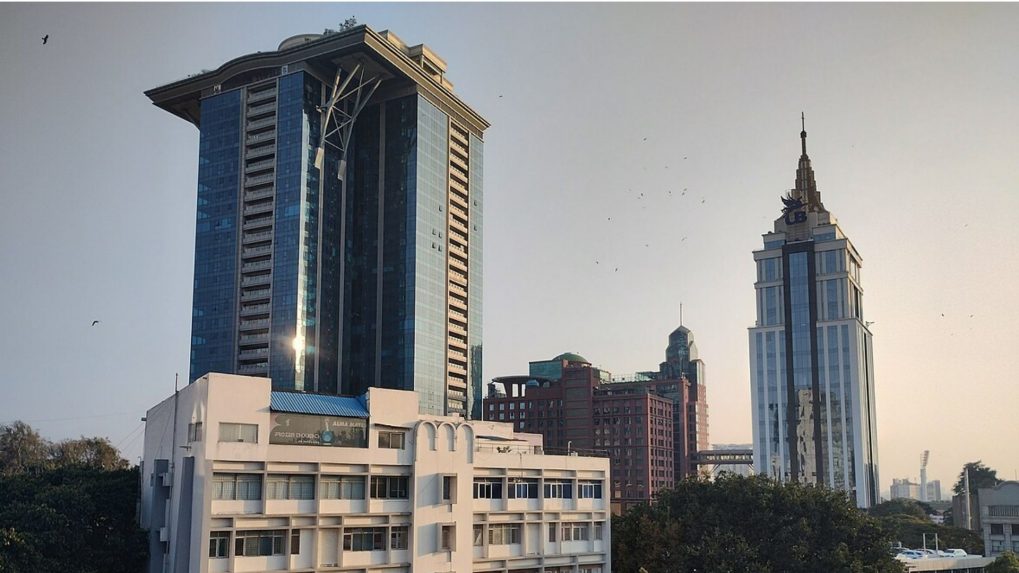Digital
Why OpenAI is hiring 100 ex-bankers: Inside the ChatGPT-maker's secret project to automate Wall Street's grunt work

Entrepreneurs in Bengaluru are voicing growing anger over the city’s failing infrastructure, saying persistent potholes, flooding and gridlocked traffic are undermining productivity and pushing companies to rethink their location strategies. A report by AFP compiled several accounts from business leaders frustrated with what they describe as a worsening crisis.
RK Misra, co-founder of a multimillion-dollar startup, told AFP that he has stopped scheduling morning in-person meetings because of the city’s prolonged “rush hour”, which now lasts nearly half the day.
“The situation is pretty bad. And it hurts not being able to plan your day,” Misra tld AFP.
He added that a 16-kilometre commute can take two hours during peak times, forcing entrepreneurs to avoid mornings altogether. “I avoid in-person meetings until noon, then squeeze them in before gridlock returns,” he said, calling the ordeal a blow to work-life balance.
Bengaluru, home to nearly 12 million people and thousands of startups, outsourcing firms and global tech giants, continues to struggle with basic infrastructure. Its flagship Outer Ring Road (ORR) business corridor—home to dozens of Fortune 500 offices—is notorious for traffic jams, potholes, dust, and monsoon flooding.
Rajesh Yabaji, CEO of logistics platform BlackBuck, recently announced his company’s exit from the ORR area, saying he reached a breaking point.
“The average commute for my colleagues shot up to 1.5+ hours (one way),” Yabaji wrote on social media. He described the roads as “full of potholes and dust, coupled with lowest intent to get them rectified.”
Biocon founder Kiran Mazumdar-Shaw has repeatedly expressed her frustration over the city’s decline.
“I had an overseas business visitor who asked, ‘Why are the roads so bad and why is there so much garbage? Doesn’t the government want to support investment?’” she wrote on social media.
Bengaluru recorded the world’s third-slowest traffic in 2024, according to the TomTom Traffic Index. Manas Das of the Outer Ring Road Companies Association, which works with authorities on infrastructure issues, said commute delays are now a major operational risk for global tech companies. B.S. Prahallad, technical director at Bengaluru Smart Infrastructure, estimated that it takes 90–100 minutes to travel just 16 kilometres in the city.
Karnataka Deputy Chief Minister DK Shivakumar recently claimed on X that over 10,000 potholes had been identified, with half repaired so far.
Once known as India’s “garden city” and a “pensioner’s paradise”, Bengaluru’s rapid growth began in the 1990s with the IT boom. Investment helped quadruple Karnataka’s software exports to $46 billion between 2014 and 2024.
But the expansion came at a high environmental cost. Ecologist Harini Nagendra noted that unchecked growth has clogged waterways, destroyed wetlands and increased flooding.
“We have flooding because water has no place to go, drought because water is not infiltrating into the ground,” she said.
“People are choking on pollution, choking on the concrete — and all the dust that comes with construction, traffic, smog, heatwaves.”
According to WELL Labs research, nearly half of Bengaluru relies on borewells that dry up in summer, while the rest depend on expensive trucked-in water — a crisis expected to worsen with climate change.
From Delhi’s sharp-tongued lyricists to Chennai’s bilingual innovators and North-East India’s experimental beatmakers, Rap 91 LIVE’s lineup was a sonic map of the country’s cultural diversity.
Read MoreAs WPP reels from revenue declines and vows sweeping restructuring, Publicis and Havas ride strong AI-led client demand. With Omnicom and IPG on the cusp of a historic merger, the global advertising landscape braces for a power realignment built on data, technology, and efficiency.